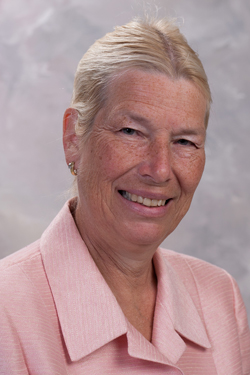40 Years of Educating Physicians

This year, the University of Illinois College of Medicine at Peoria (UICOMP) is celebrating the 40th anniversary of its creation. The drive to start a medical school in Peoria came initially from the Peoria Medical Society, as area physicians recognized the need to train more physicians for central Illinois. In 1962, the Medical Society established a Medical School Exploratory Committee, and over the next several years worked closely with area legislators.
In the fall of 1965, state government passed a bill directing the Illinois Board of Higher Education to study expanding medical education. At this point, a collaborative, community-wide committee was formed, led by Mr. William Blackie, who was then chairman of the Caterpillar Tractor Company. Community leaders worked closely with the Medical Society and legislative leadership in an effort to bring the medical school to Peoria.
The effort to establish the medical school was not without controversy. Some area physicians were concerned about the impact of the medical school on their practices. There was a battle over where the medical school would be located. There were arguments over who was responsible for the education of residents. However, each of these issues was resolved, sometimes after heated debates that were well-documented in the Peoria Journal Star. The end result was that, on July 1, 1970, the medical school campus in Peoria was officially created.
It took the combined efforts of our community to bring the medical school to Peoria. As a result of this effort, UICOMP is graduating 50 medical students and over 50 residents annually. Physician graduates of UIC and UICOMP programs make up nearly 45 percent of the practicing physicians in Peoria and a substantial number of those practicing in the surrounding region. Our regional healthcare enterprise is dependent on the physicians we train. Clearly, we should be grateful for the foresight and commitment displayed when our physician and community leaders established the medical school 40 years ago.
Today, UICOMP continues to work with local physicians, community leaders and area businesses to expand and improve the medical school. We are expanding our educational programs by developing a psychiatry residency and a cardiology fellowship. These new programs will help train more physicians to meet the needs of central Illinois. We are expanding our research enterprise with the construction of a new cancer research facility and the addition of our Center for Health Outcomes Research. In the future, if the state provides additional funding, we would like to expand our class size to meet the projected physician shortage.
UICOMP is an excellent example of how collaborative efforts can have a profound effect on our community. It is hard to imagine what would have occurred if our leaders had not worked together to solve the problems and controversies that surrounded the start of the medical school. Current community projects also depend on sustaining collaboration in spite of controversy and challenge. When we work together to find common ground, then we can build a better and stronger community. Let’s hope that 40 years from now, our current initiatives at UICOMP and other initiatives occurring throughout the region will be applauded as successes that changed central Illinois for the better. iBi

